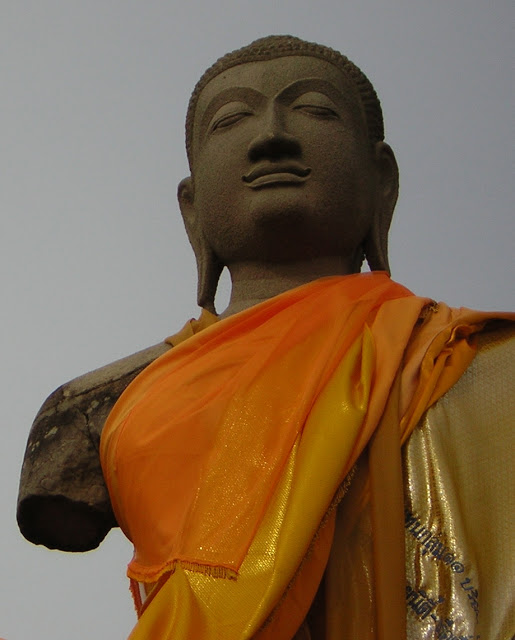Buddhist Women on a Path of Spiritual Awakening
A Frayed Knot

Wise living cannot be legislated or simulated through script or form. It needs to grow from the inside, maturing when we reflect on our omissions and misjudgements – if we resolve to learn. Valuable as they are, the lessons we garner from yesterday’s choices may be inadequate, for old wisdom bears renewal and re-examination in the light of the new moment.
Courage is indispensable for this ripening of the heart. Woven together with goodness, it provides a safety net through the trials of life. I must secure the knots with care and diligence not to hurt anyone, especially when I’m afraid, for harm is the willing consort of cowardice.
When I see injustice, at times I am compelled to protest. That may not be the right recourse. Yet keeping silent because of weakness rather than wisdom, I tacitly – and unwittingly – support what I would oppose had I the courage to speak out.
Even if my voice fails me, I am committed to uphold what is morally right. At least, I must acknowledge how my silence might violate what is precious to me. Still, there are moments when holding my tongue may be the more appropriate response.
On the day an elderly friend was rushed to intensive care, she begged to see me. I hurried to seek permission and organised a lift to the hospital. Out of nowhere, a junior nun informed me that she had petitioned to go and would be taking my place: I was forced to yield.
Unable to find alternative transport, I had to wait another two days. By then, my friend’s condition had deteriorated. I finally reached the hospital only to find all visitors barred. She died that night.
While I felt discounted by – and resentful of – my younger colleague, I grappled to quiet my heart, afraid to convey my feelings lest I be challenged over what seemed a trifling issue. Choking back outrage, I kept silent – at a price.
Every capitulation to fear is a collusion. It devalues me and wears thin the fabric of our spiritual community. Choosing to run from a situation or disparage and blame myself or others, I betray the best in me. Whereas the more I confront anguish or fear and their elaborate deceptions, the more I am able to dismantle them.
Each time I trust myself to feel what I am feeling, as awful as it may be, I move towards integrity. Simply knowing the truth of this moment may seem insignificant, but it is enough, for it is honest. No longer hidden behind conventional ‘shoulds’ and ‘musts’, the mind gives up finding fault or lamenting – and can bless whatever life brings.
This is possible – but not easy. So I practise, ever alert to the beguiling and illusory ways of coping that appear safe but are, in fact, self-harming. They lead not to peace or well-being but to spiritual poverty – to a festering discontent that undermines my ability to make wise choices.
Unless I succumb to fear, bullying and condescension do not diminish me. Though I may be misunderstood, ostracised, even abused, I take full responsibility for how I live. Then I can respond to life – not from the negativity and pain that teach us to act out of desperation – but from a sovereign connection to the heart’s natural purity.
Every moment that we free ourselves from treacherous and unworthy thoughts, we make it possible to live consciously, sowing the seed of true harmlessness and peace in the world. It is a peace founded on the resolve that we not let the sun go down upon one more day of violence or duplicity towards ourselves or anyone else.
We may condone being afraid but we never abandon goodness.
© Ayyā Medhānandī
This a post from Ayyā Medhānandī’s blog written while based in Penang. She draws on her experiences in a monastic community in England as a solitary nun in a coastal hamlet of New Zealand and as an urban nun perched in a ‘sky temple’ overlooking the Malacca Straits. Other posts from this blog can be found under “Penang’s Blog” topic category.
